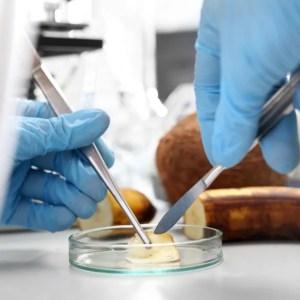Food waste is a big problem. It contributes to around 8-10% of the world’s greenhouse gases and costs us trillions of dollars yearly, according to the United Nations Environment Programme. However, a new study shows that a simple electrical current may turn this waste into something valuable.
Scientists have discovered that by applying a mild electric charge to food waste, they can boost the microbes that break it down. This process produces useful chemicals like acetone, ethanol, and butanol, as reported by Anthropocene. Instead of letting leftovers rot in landfills, we could create valuable products from them.
Researchers from Ohio State University tested two types of Clostridium bacteria on food products like sour cream and ice cream. In traditional fermentation tanks, these bacteria did produce some useful chemicals, but the results improved when electricity was added. The electrofermentation technique allowed the microbes to generate up to 12 times more butanol using lower voltage. Lead author Saba Beenish highlighted that this could turn food waste from one industry into resources for another.
Food waste isn’t just an environmental issue—it’s a financial one too. The Natural Resources Defense Council reported that the average U.S. family of four tosses out about $1,500 worth of food each year. By converting waste into valuable chemicals, we can tackle both the hunger for resources and the problem of rising grocery prices.
This research also addresses environmental concerns. Reducing food waste can lower methane emissions, which contribute to climate change. Moreover, many products today are made from oil and gas. By using food waste instead, we can decrease the need for fossil fuels and reduce air pollution in communities reliant on chemical plants.
If we apply these findings on a larger scale, our leftover food might one day fuel industries rather than fill up landfills. It’s a promising step forward in managing waste and supporting a greener planet.
For more on food waste and innovative solutions, check out the Natural Resources Defense Council’s findings.
Source link
United Nations Environment Programme, Food waste, industrial chemicals, electricity supply, Clostridium bacteria, electricity, landfill waste, Ohio State University, food


